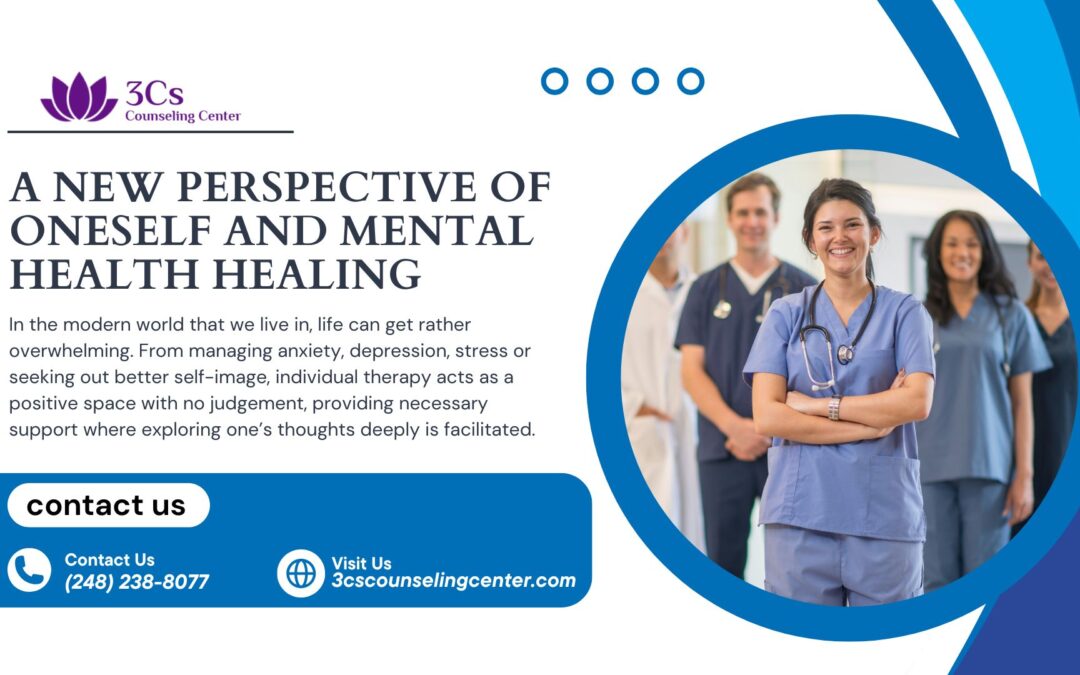In today’s fast-paced world, stress, anxiety, and emotional overwhelm can become part of daily life. Whether you’re facing depression, low self-esteem, or navigating a major life change, individual therapy provides a safe, judgment-free space to heal, reflect, and grow.
Let’s explore how this form of mental health therapy can transform your well-being and offer a clearer understanding of yourself.
What Is Individual Therapy?
Also known as talk therapy or psychotherapy, individual therapy involves private, one-on-one sessions with a licensed therapist or mental health professional. The purpose? To help you process emotions, develop coping strategies, and enhance overall mental health.
Unlike group, couples, or family counseling, individual therapy focuses solely on your personal goals, challenges, and emotional journey. It’s a customized experience that encourages honest, open dialogue—without fear of judgment.
Key Benefits of Individual Therapy
The advantages of seeing a therapist for individual counseling include:
-
✅ Managing Mental Health Conditions
Helps treat anxiety, depression, PTSD, OCD, and other disorders. -
✅ Improved Self-Awareness
Encourages introspection and deeper understanding of thoughts, emotions, and behavior. -
✅ Healthy Coping Strategies
Equips you with tools to manage stress, resolve conflict, and handle emotional distress. -
✅ Better Communication Skills
Enhances interpersonal effectiveness in personal and professional relationships. -
✅ Support During Life Transitions
Offers guidance through divorce, grief, job loss, or other major life events. -
✅ Boosted Self-Esteem
Builds confidence and a stronger sense of self-worth.
What to Expect in Your First Therapy Session
The first appointment typically includes an intake assessment, where your therapist gathers information about your background, current challenges, and treatment goals. Together, you’ll create a customized therapy plan that fits your needs.
Ongoing sessions may involve:
-
Exploring thought patterns and emotional triggers
-
Identifying unhelpful behaviors or beliefs
-
Practicing healthy coping techniques
-
Setting and reviewing personal development milestones
Sessions usually occur weekly or biweekly and last 45 to 60 minutes.
Therapeutic Techniques Commonly Used in Individual Therapy
Therapists tailor their approach based on your needs. Popular methods include:
-
🧠 Cognitive Behavioral Therapy (CBT)
Focuses on changing negative thought patterns and behaviors. -
🕰️ Psychodynamic Therapy
Explores how past experiences shape current behavior. -
🌱 Humanistic Therapy
Emphasizes self-growth and emotional authenticity. -
🧘 Mindfulness-Based Therapy
Uses meditation and mindfulness to regulate thoughts and emotions. -
🛠️ Solution-Focused Therapy
Concentrates on finding practical solutions rather than analyzing problems.
Many therapists use an integrative approach, combining several methods to offer more personalized support.
Is Individual Therapy Right for You?
Therapy isn’t just for those in crisis. Anyone seeking personal growth, emotional healing, or better mental wellness can benefit.
Consider therapy if you want to:
-
Manage anxiety, depression, or trauma
-
Improve communication and relationships
-
Navigate life changes with support
-
Build self-confidence and clarity
-
Heal from past emotional wounds
Even without a specific problem, therapy offers a powerful space to think, grow, and heal.
How to Choose the Right Therapist
Finding a compatible therapist is crucial. Look for someone whose:
-
Education and specialties align with your needs
-
Approach and personality match your comfort level
-
Availability and location work with your schedule (in-person or virtual)
Always feel free to ask questions about their experience, therapy style, or treatment plans during your initial consultation.
Take the First Step Toward Healing
Choosing to start therapy can be life-changing. Individual therapy empowers you to take control of your emotional well-being, gain insights about yourself, and start the journey toward a healthier, more fulfilled life.
💬 Ready to take charge of your mental health? Contact a certified therapist today and begin your path to healing, self-discovery, and personal growth.


